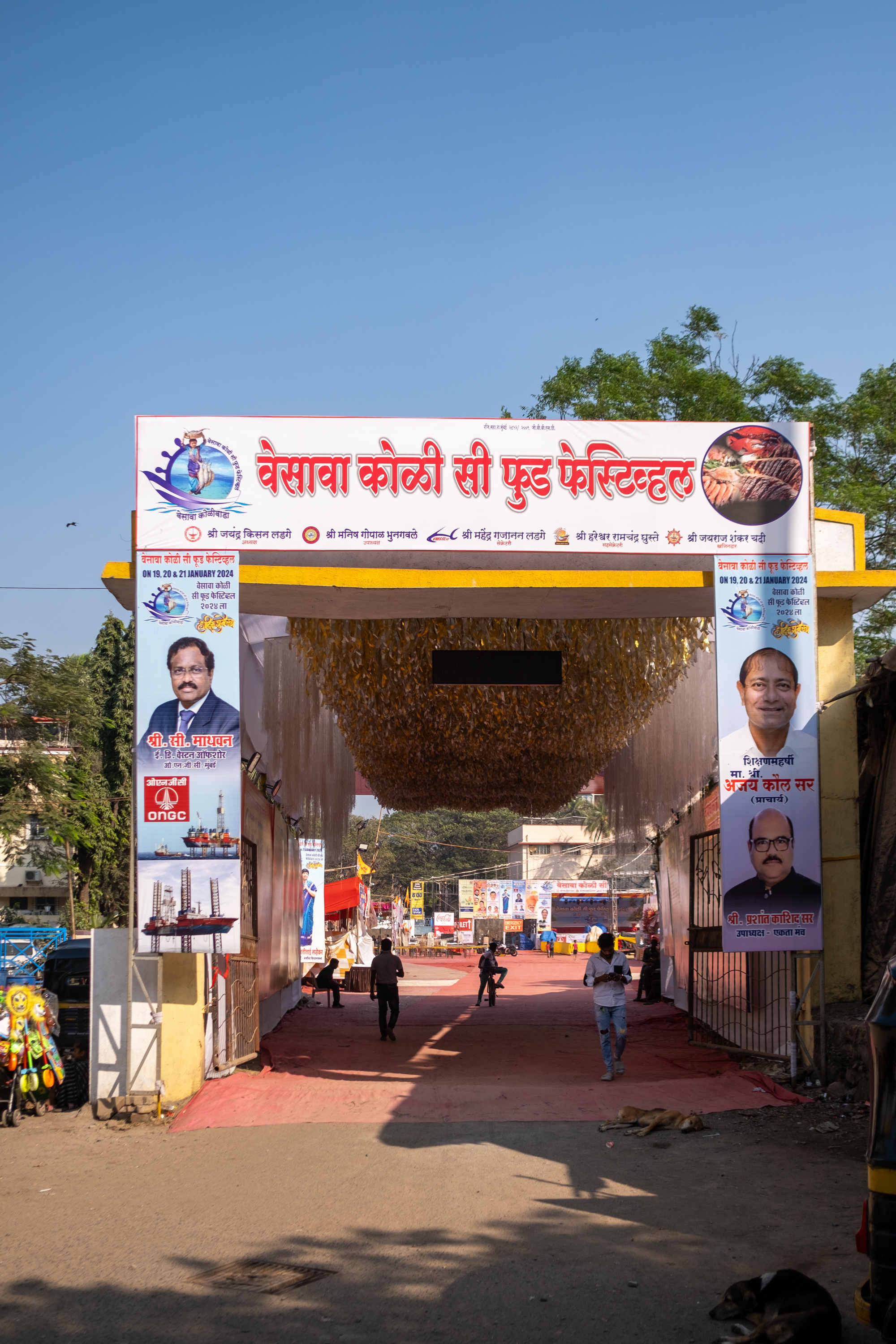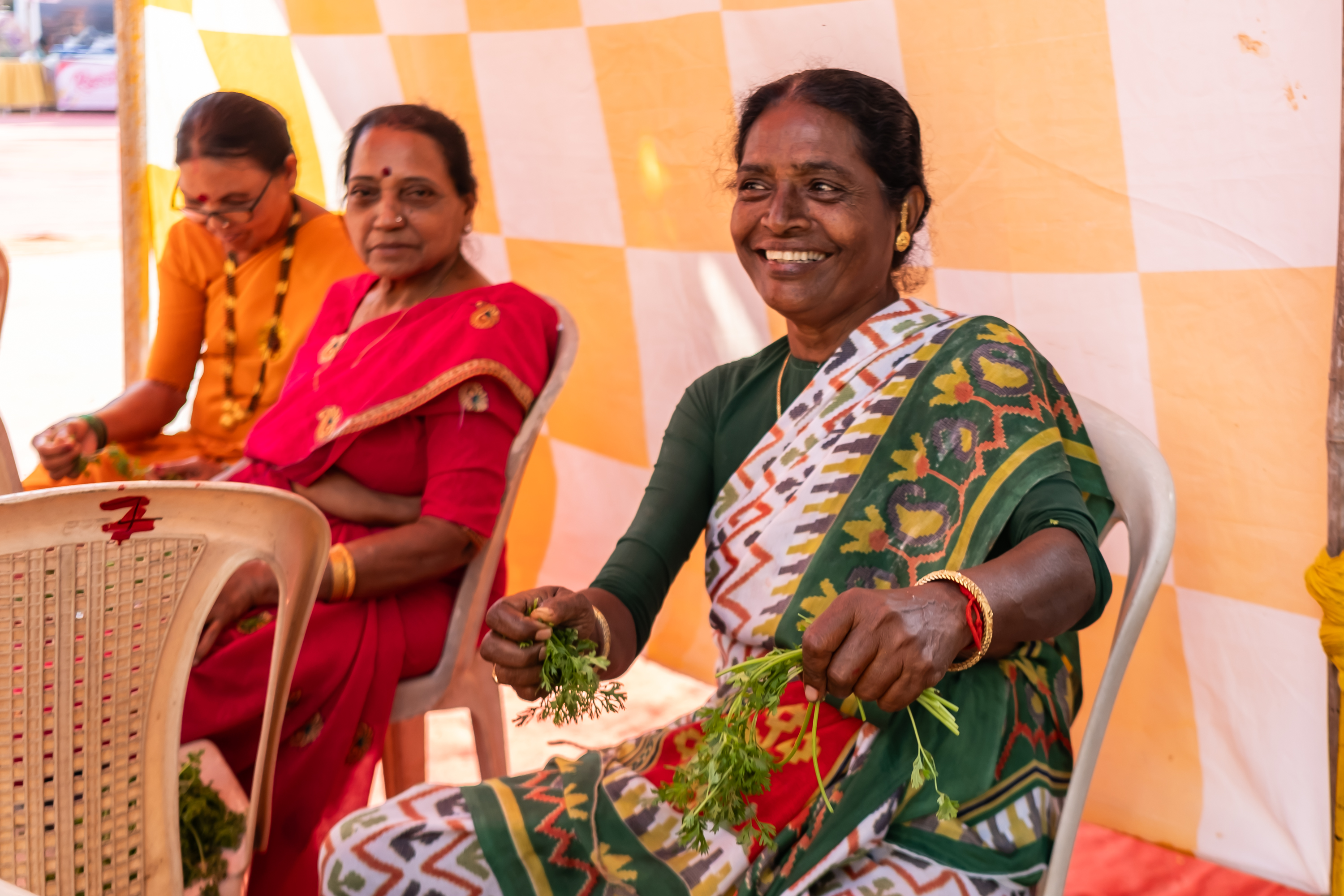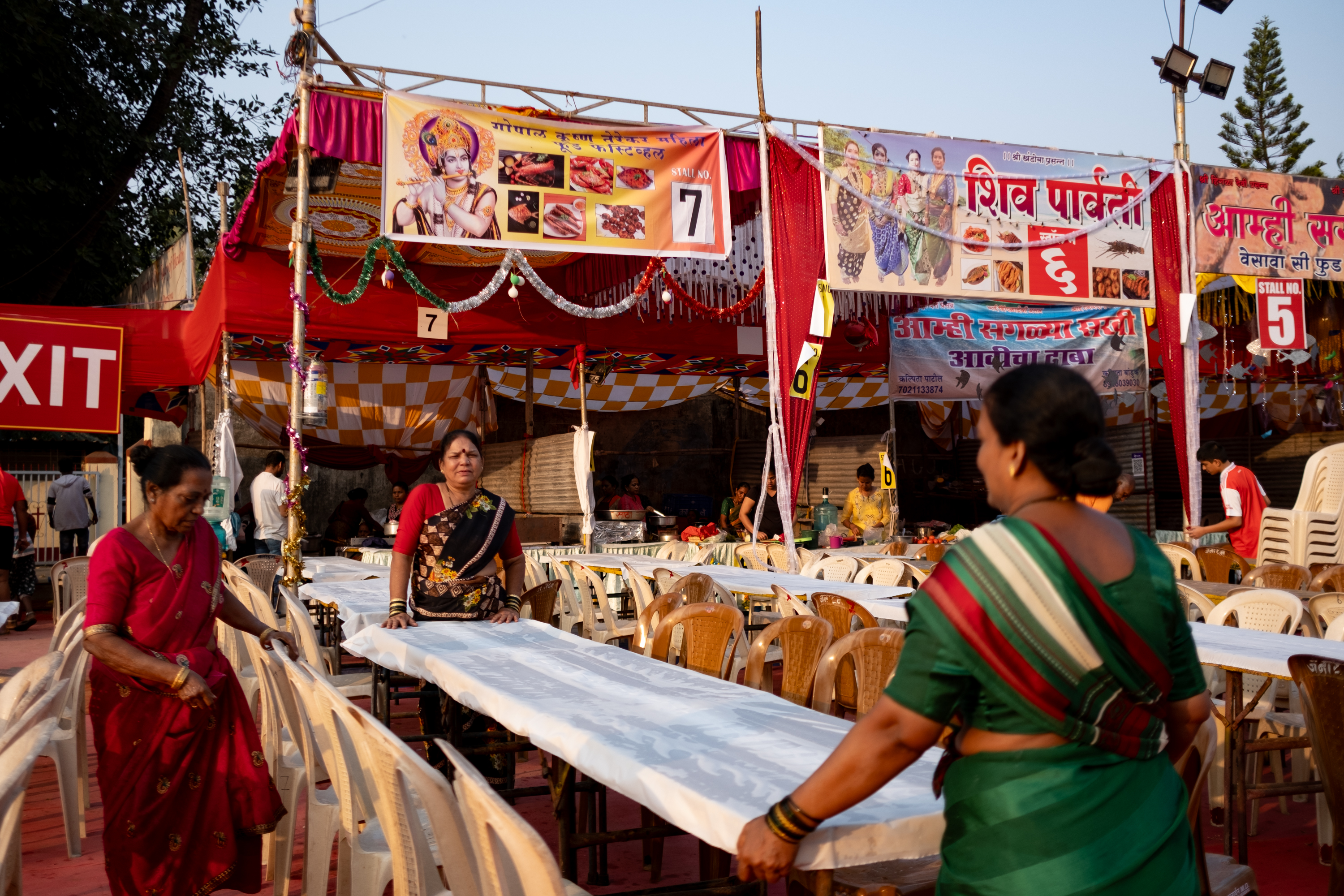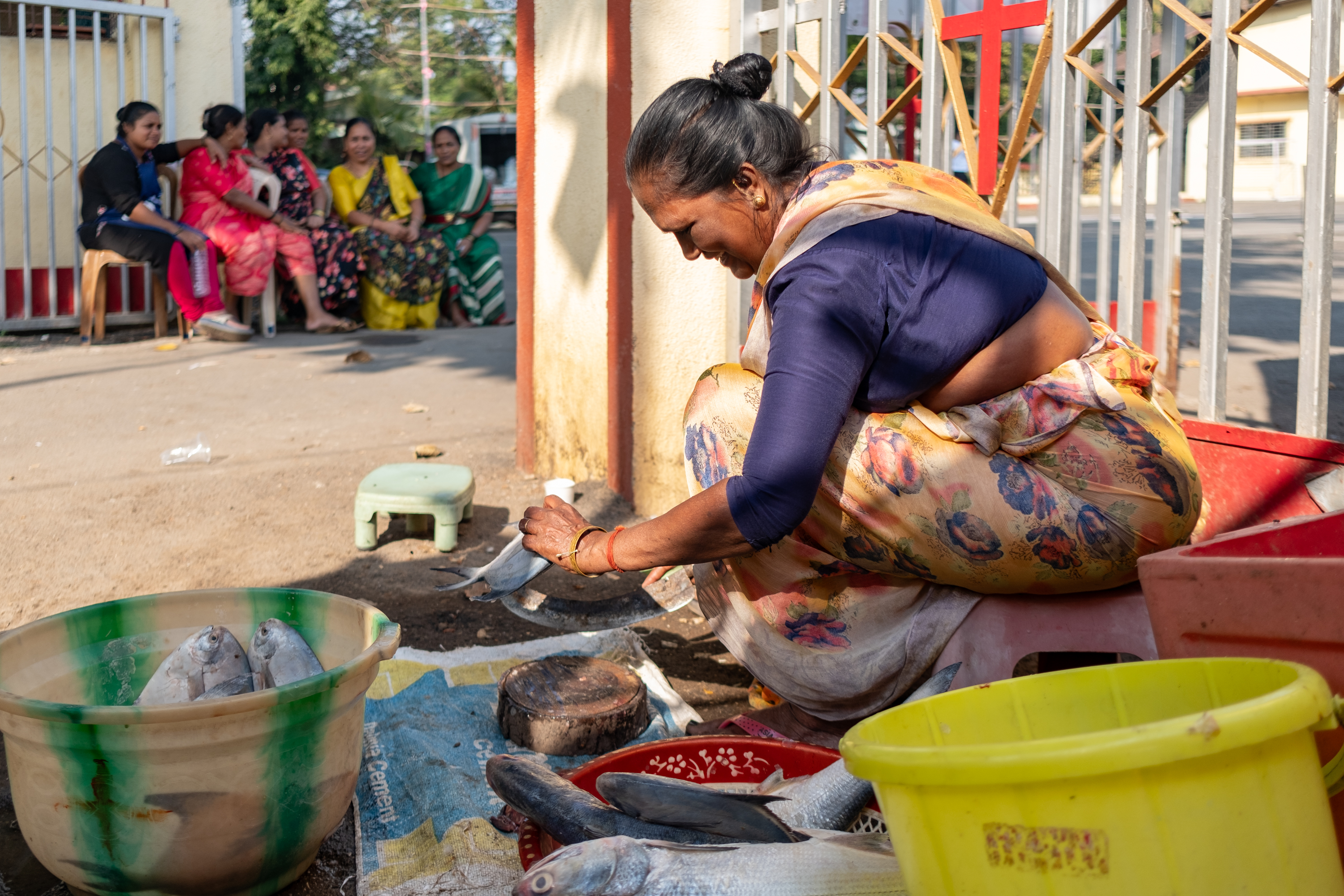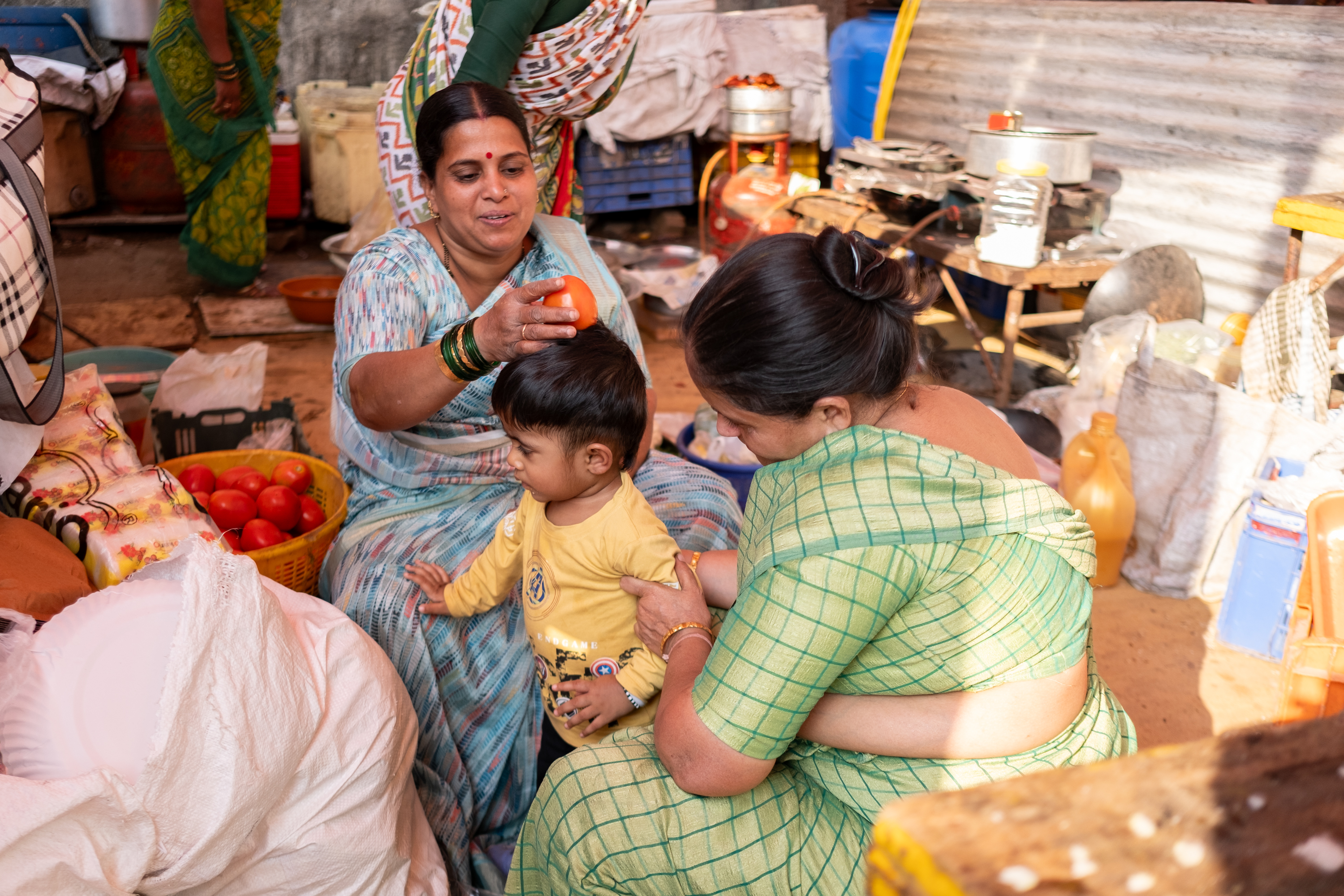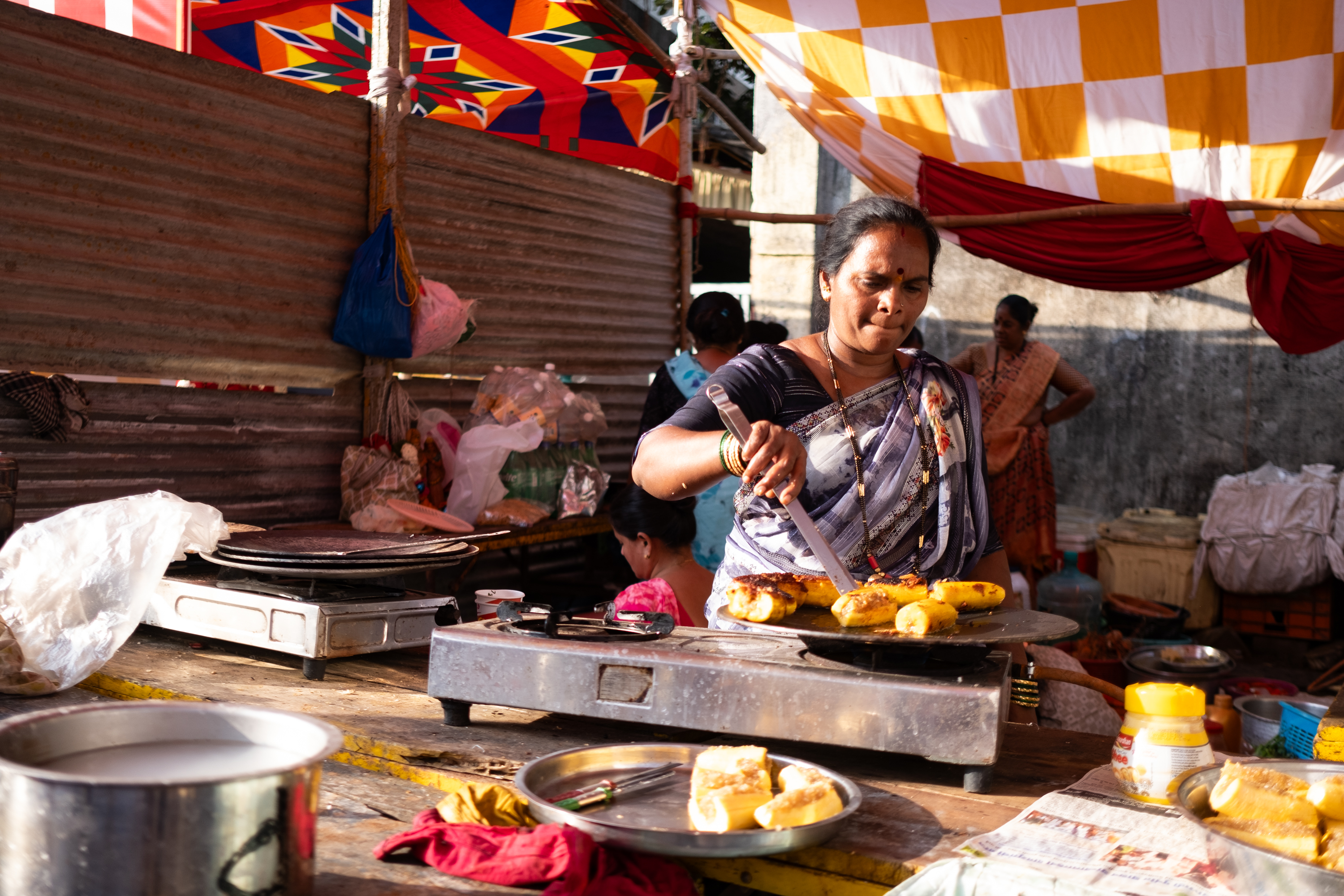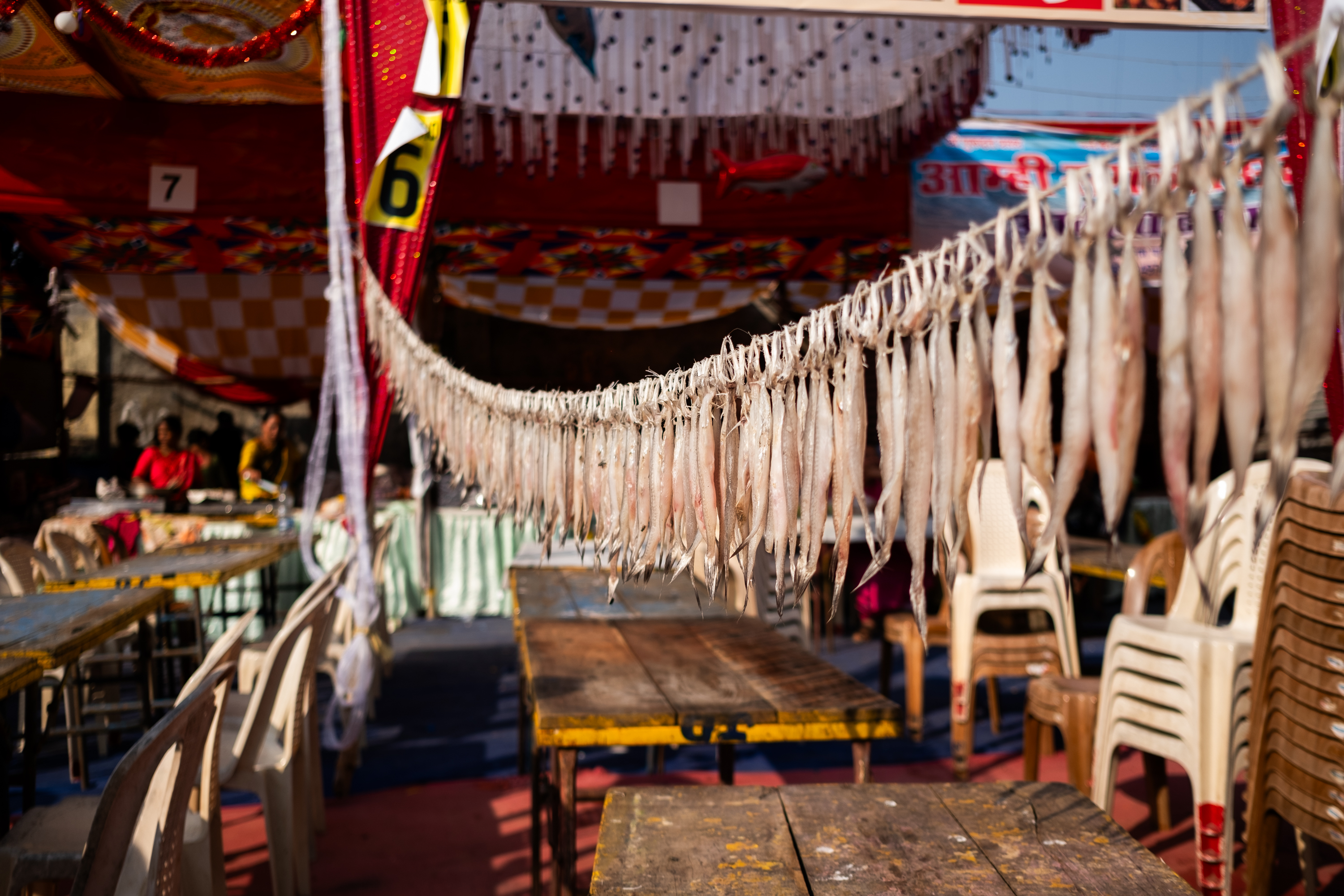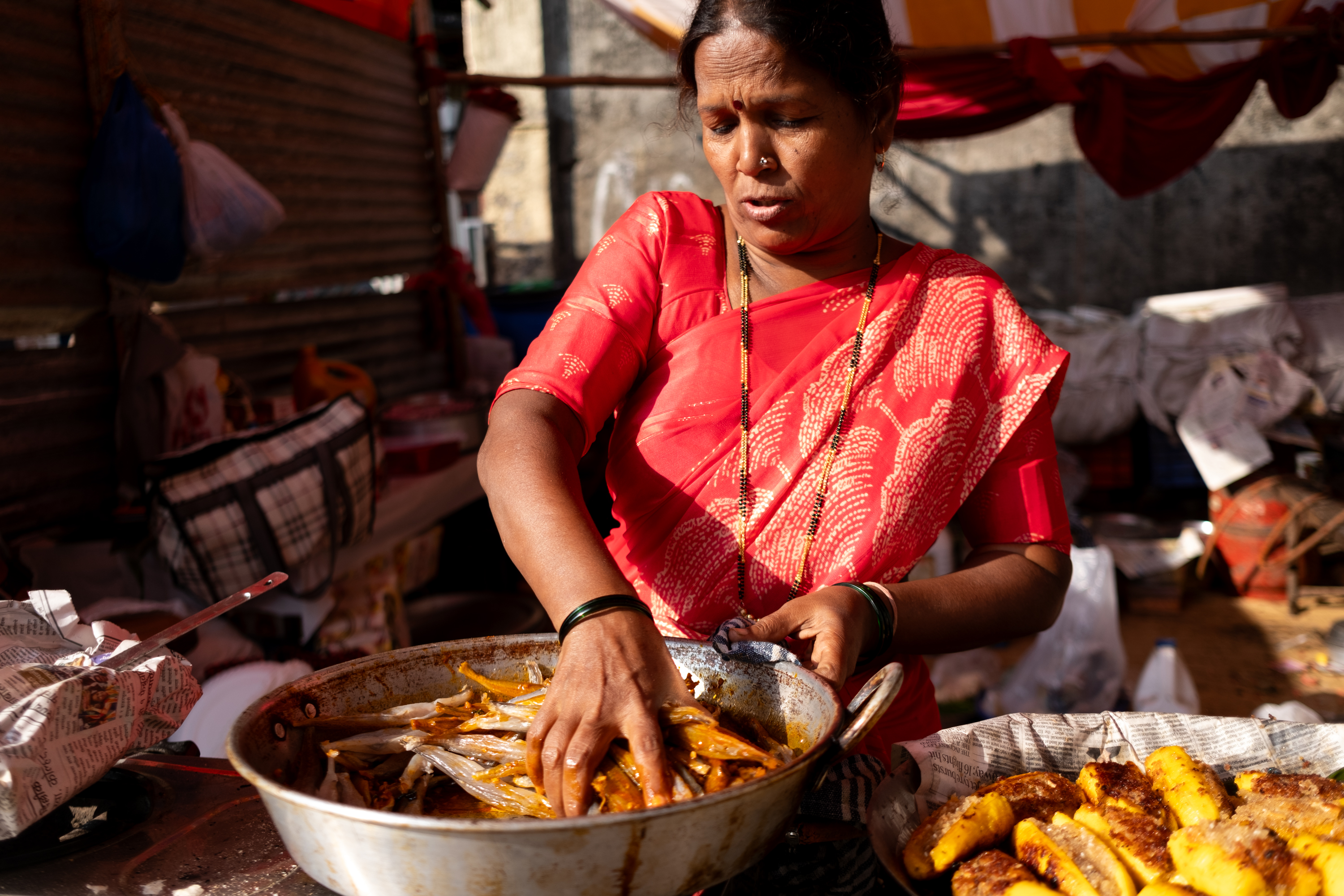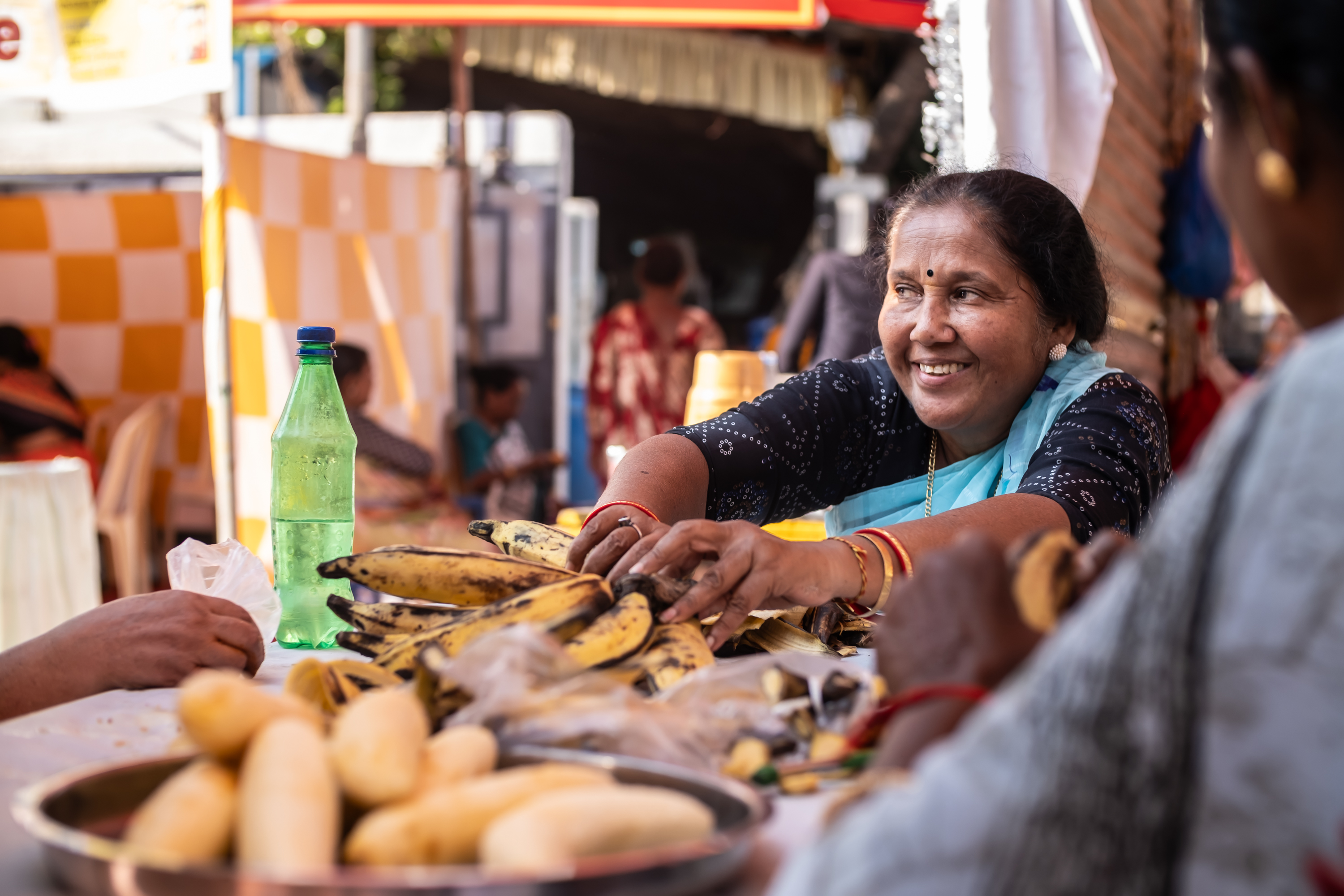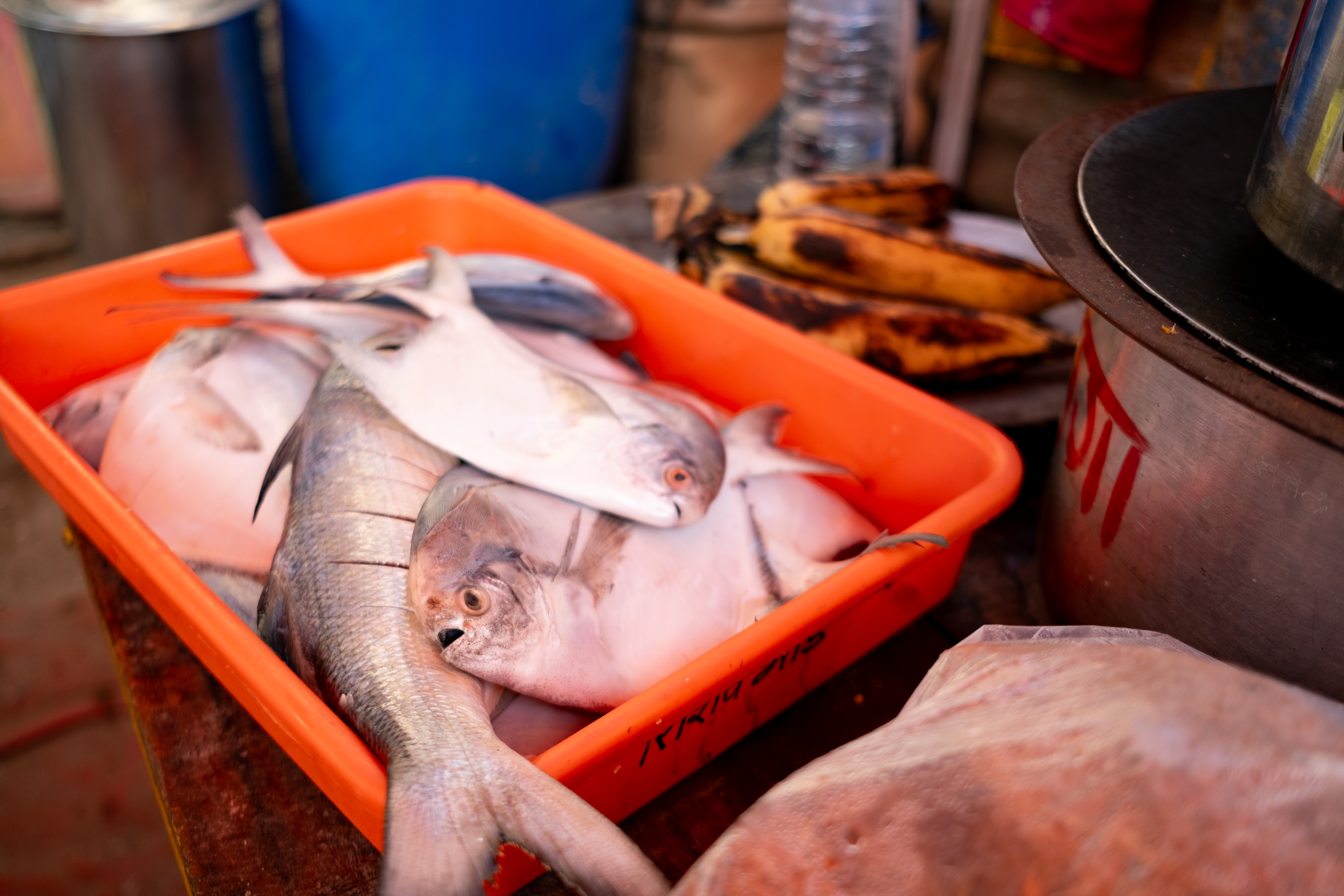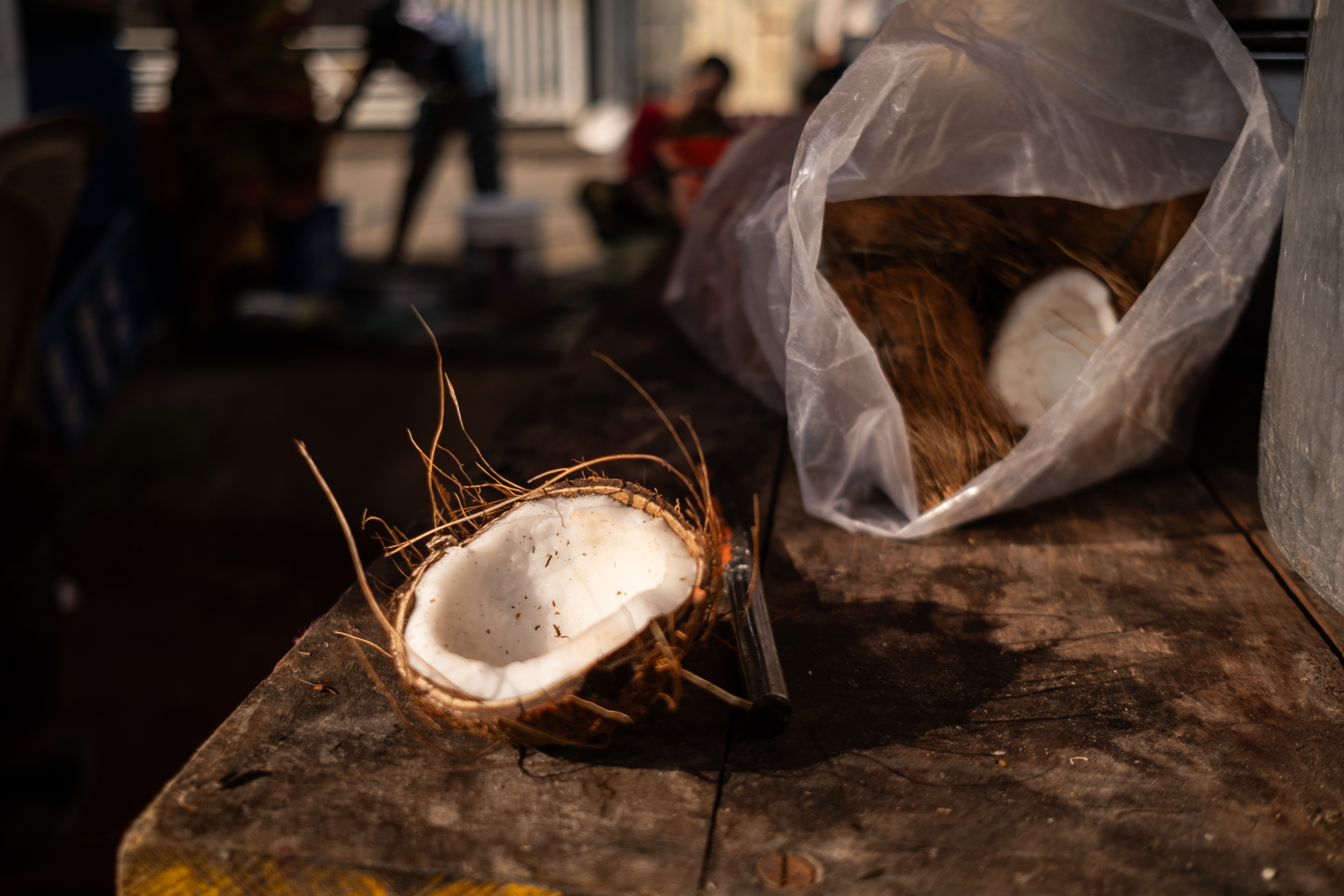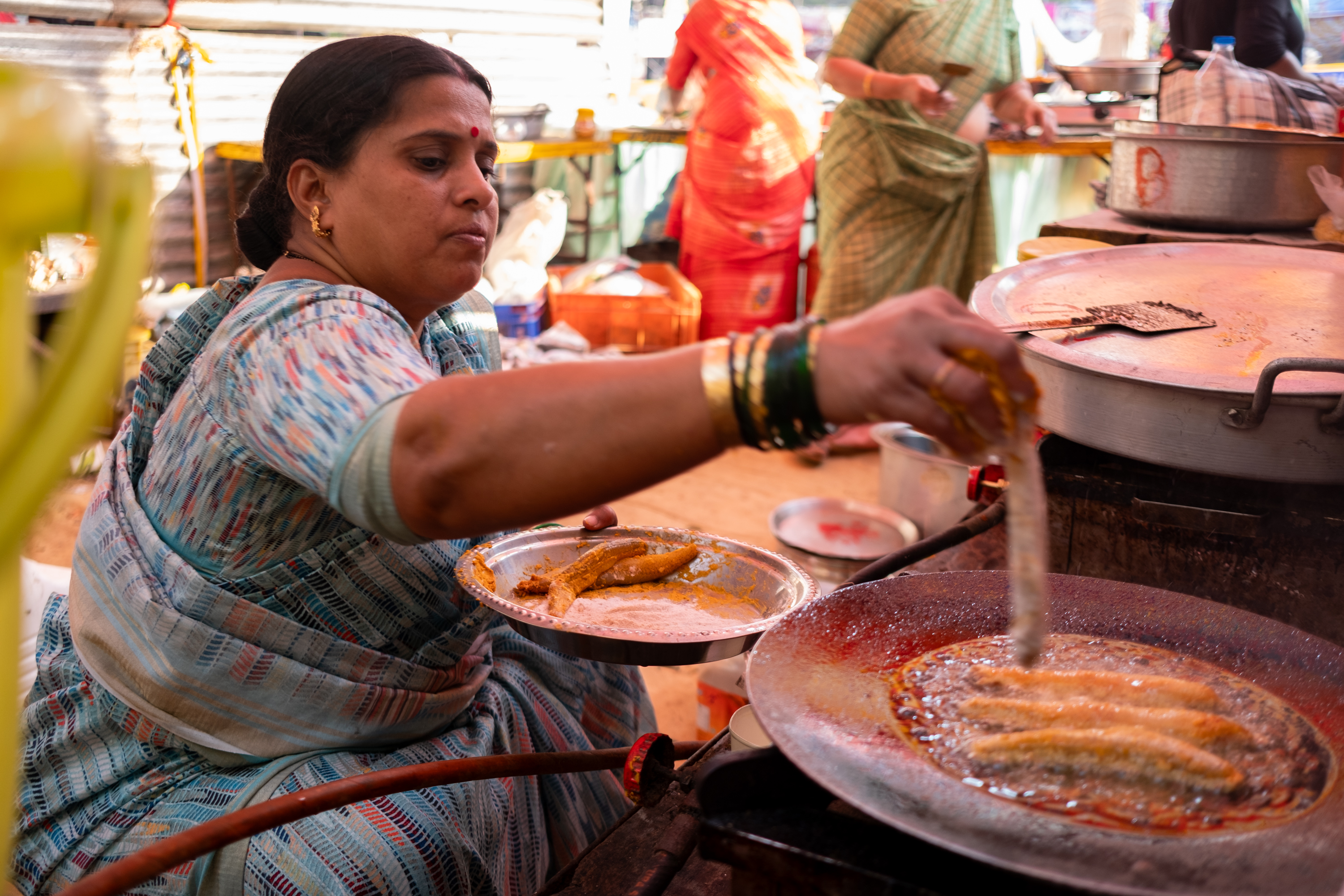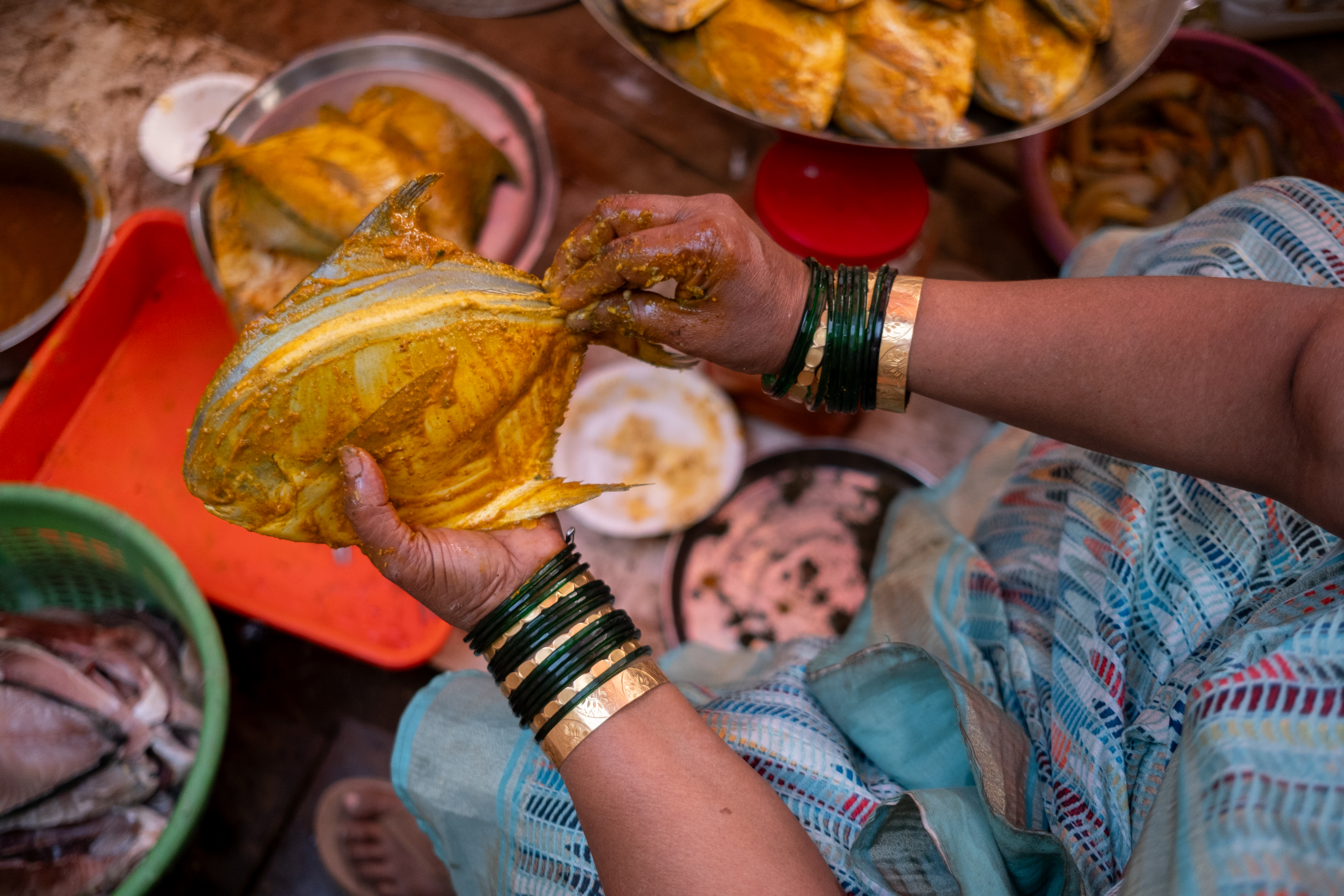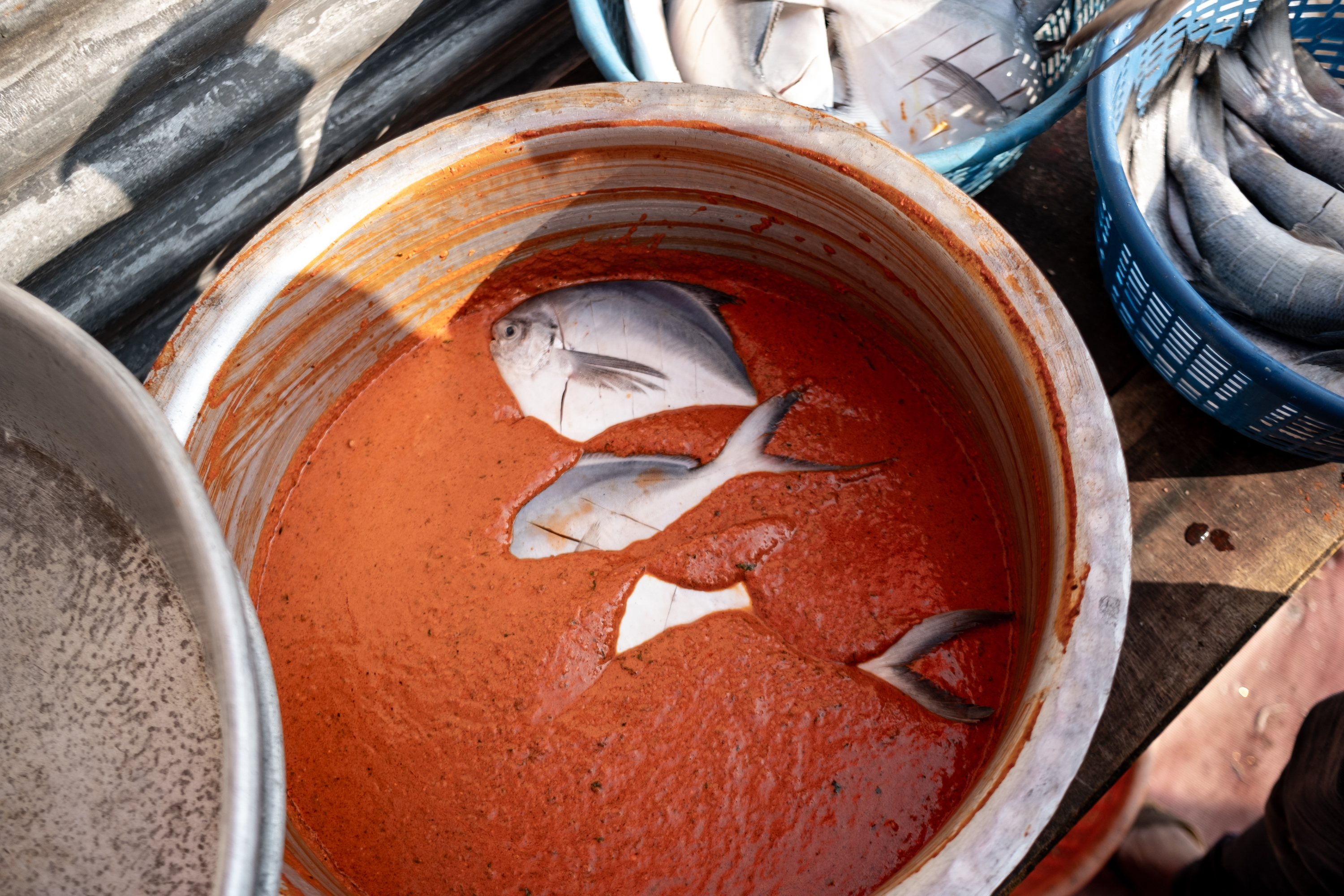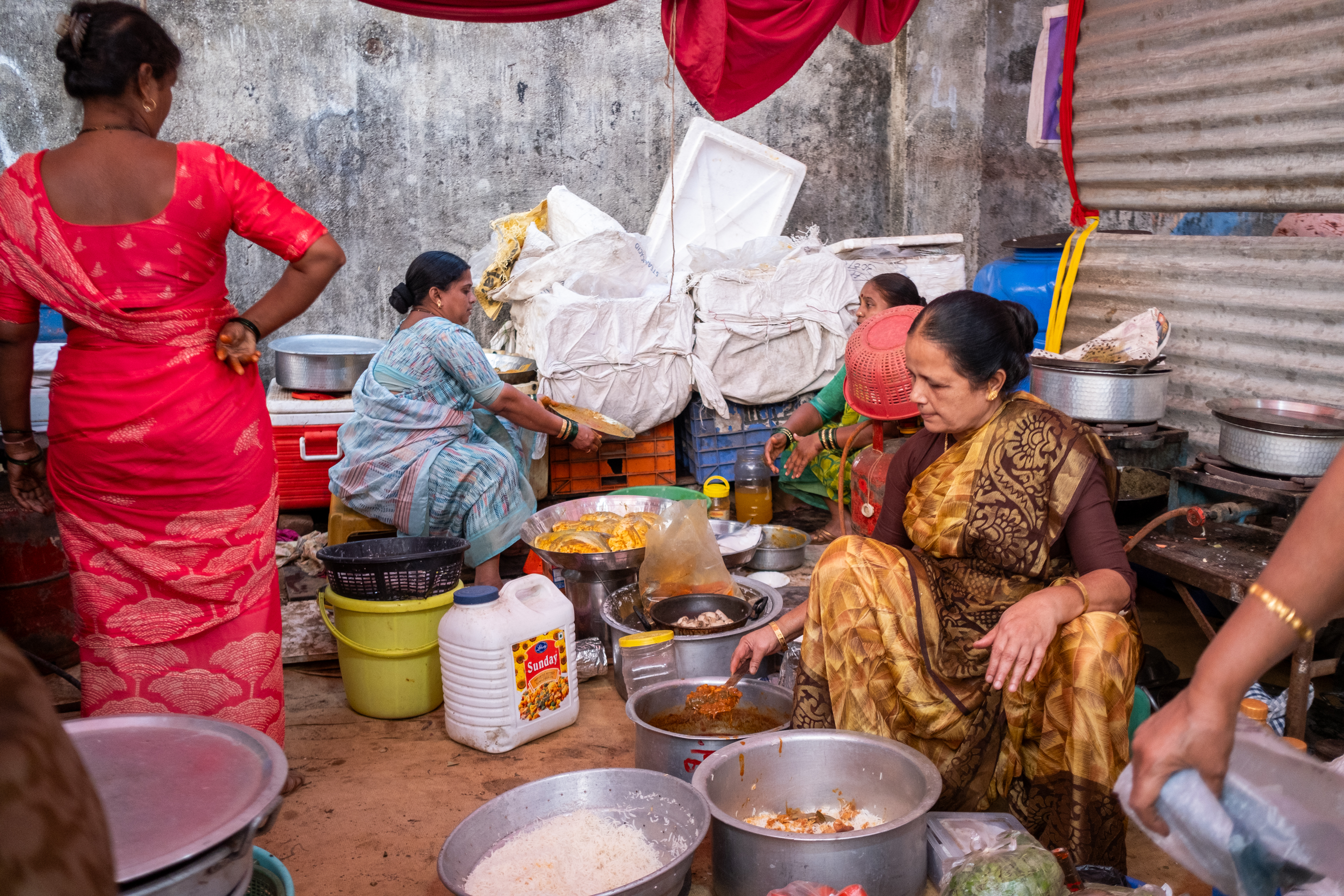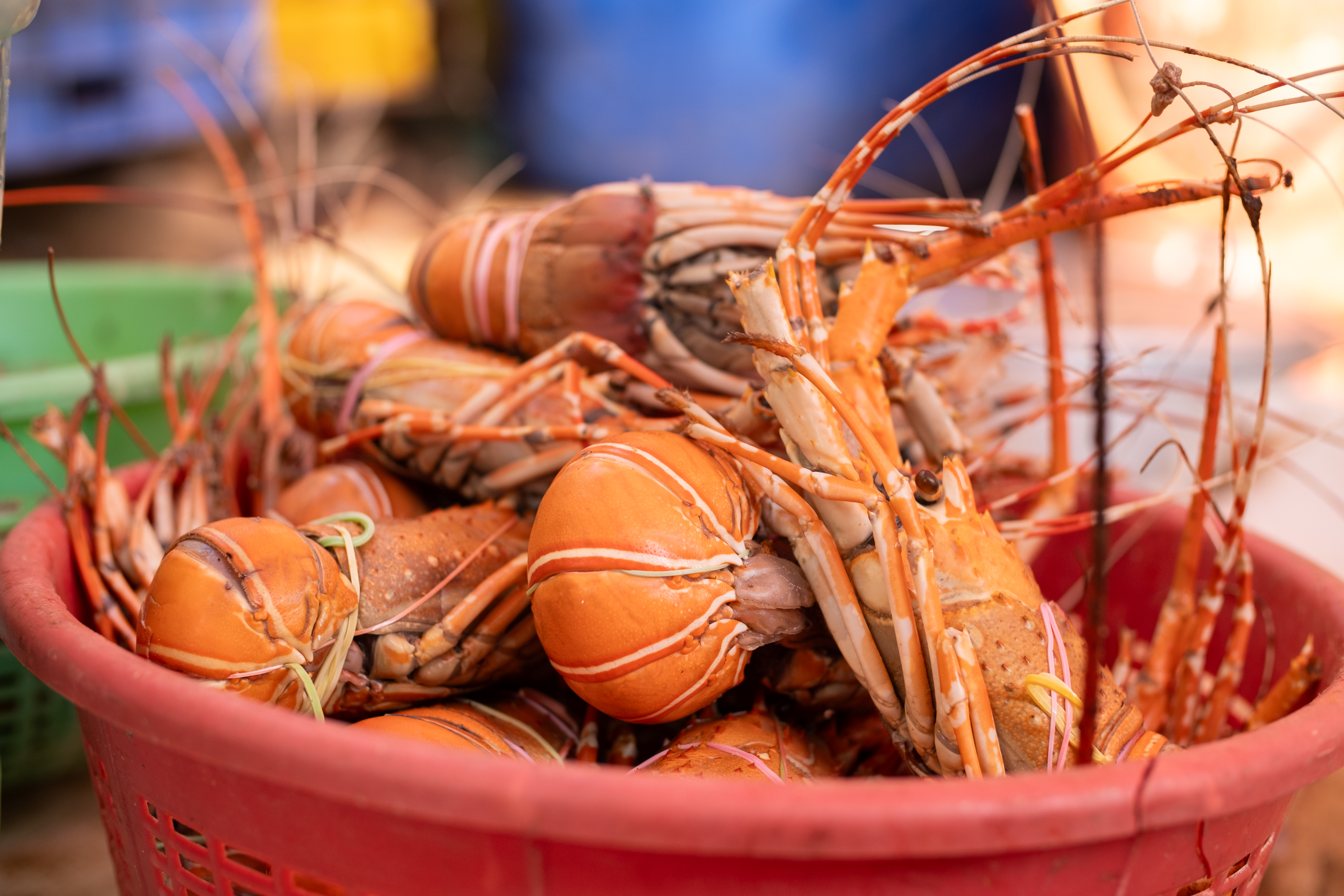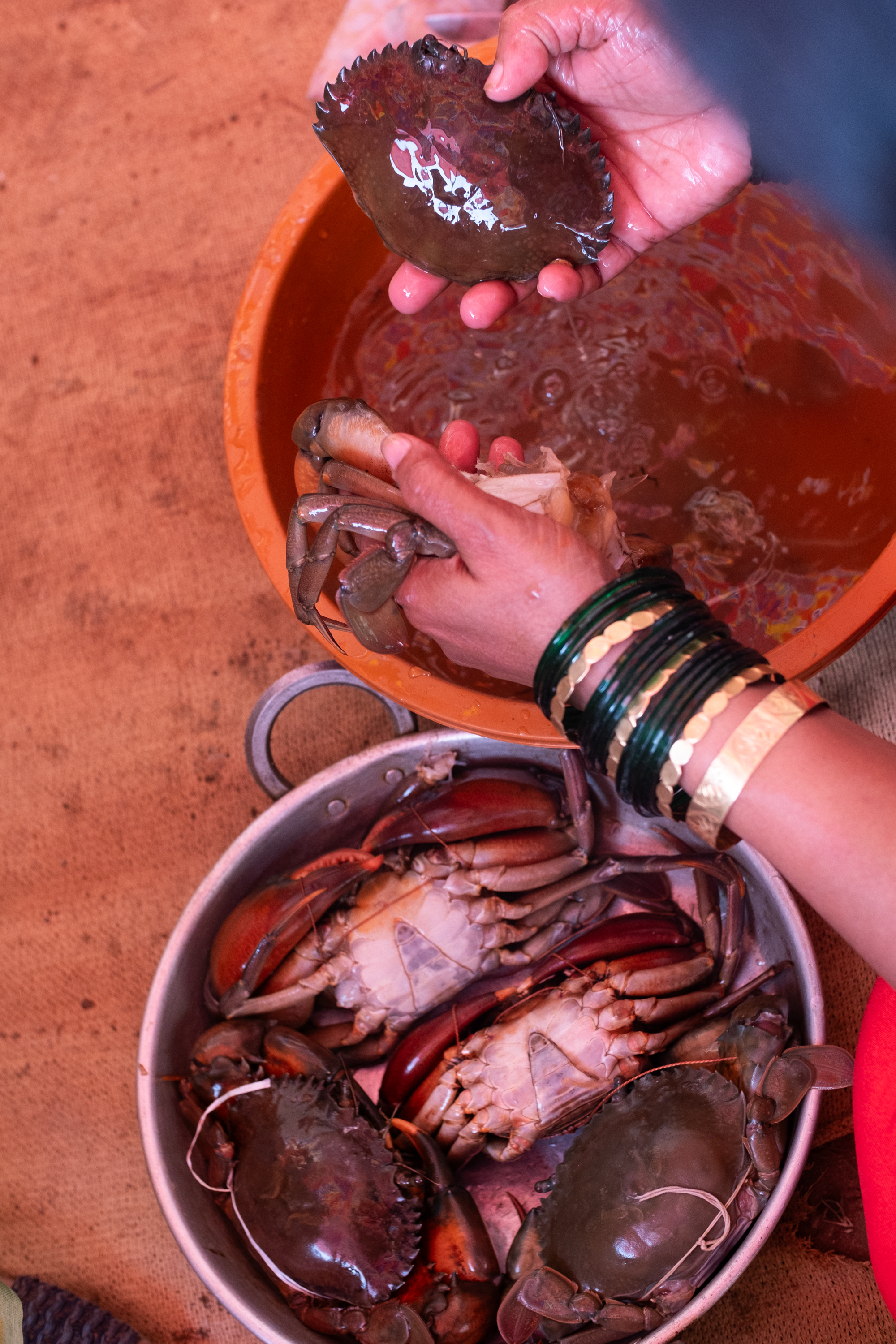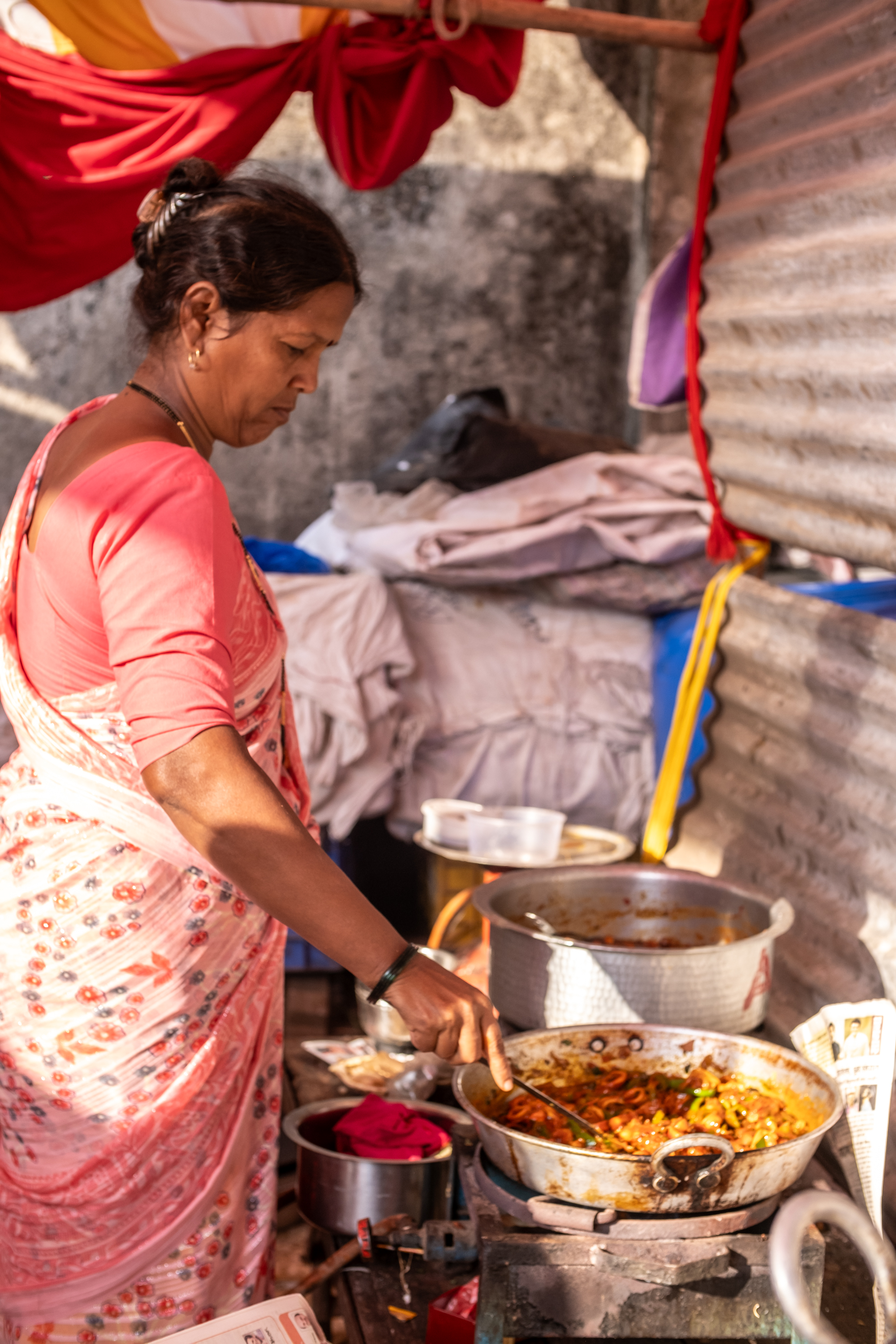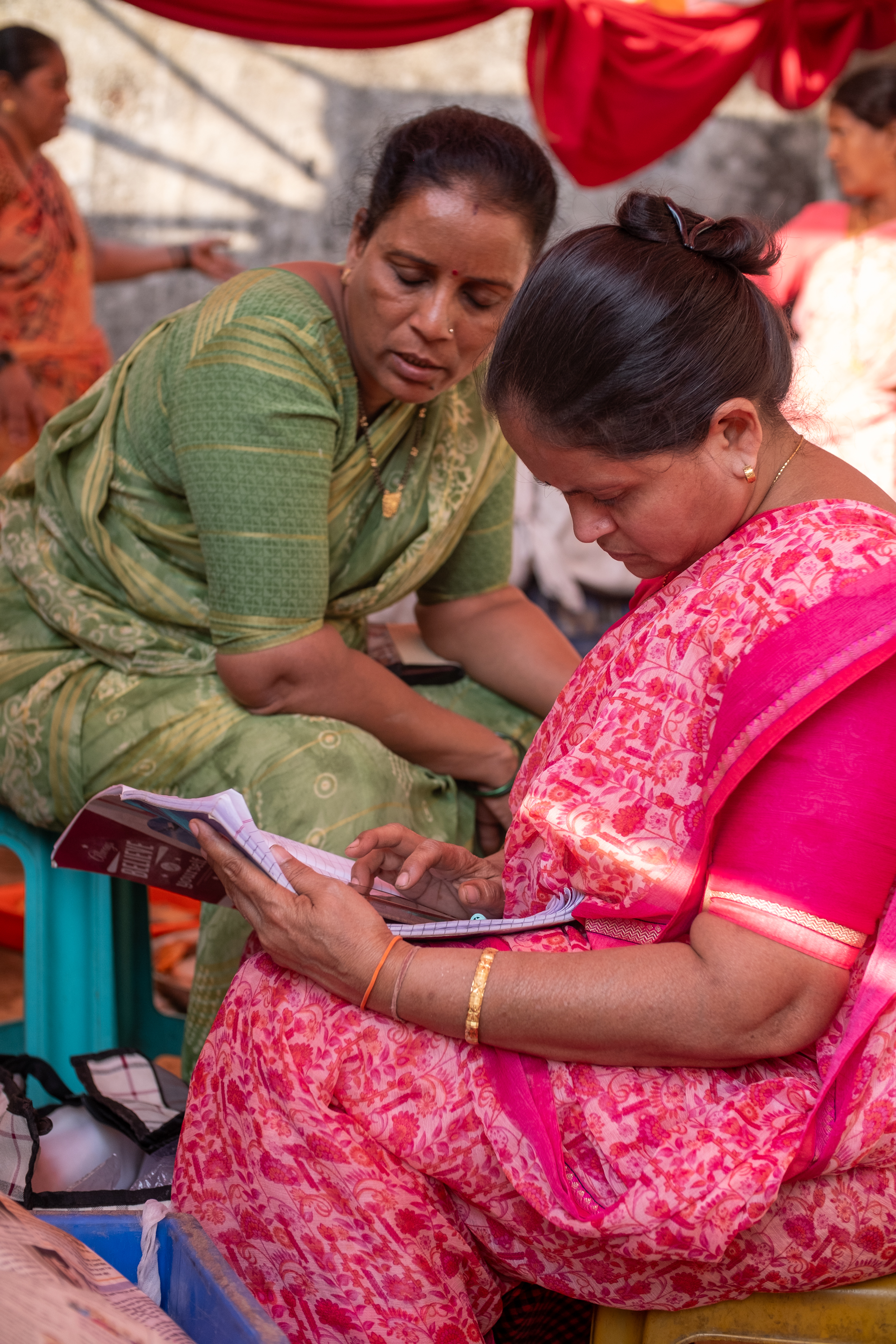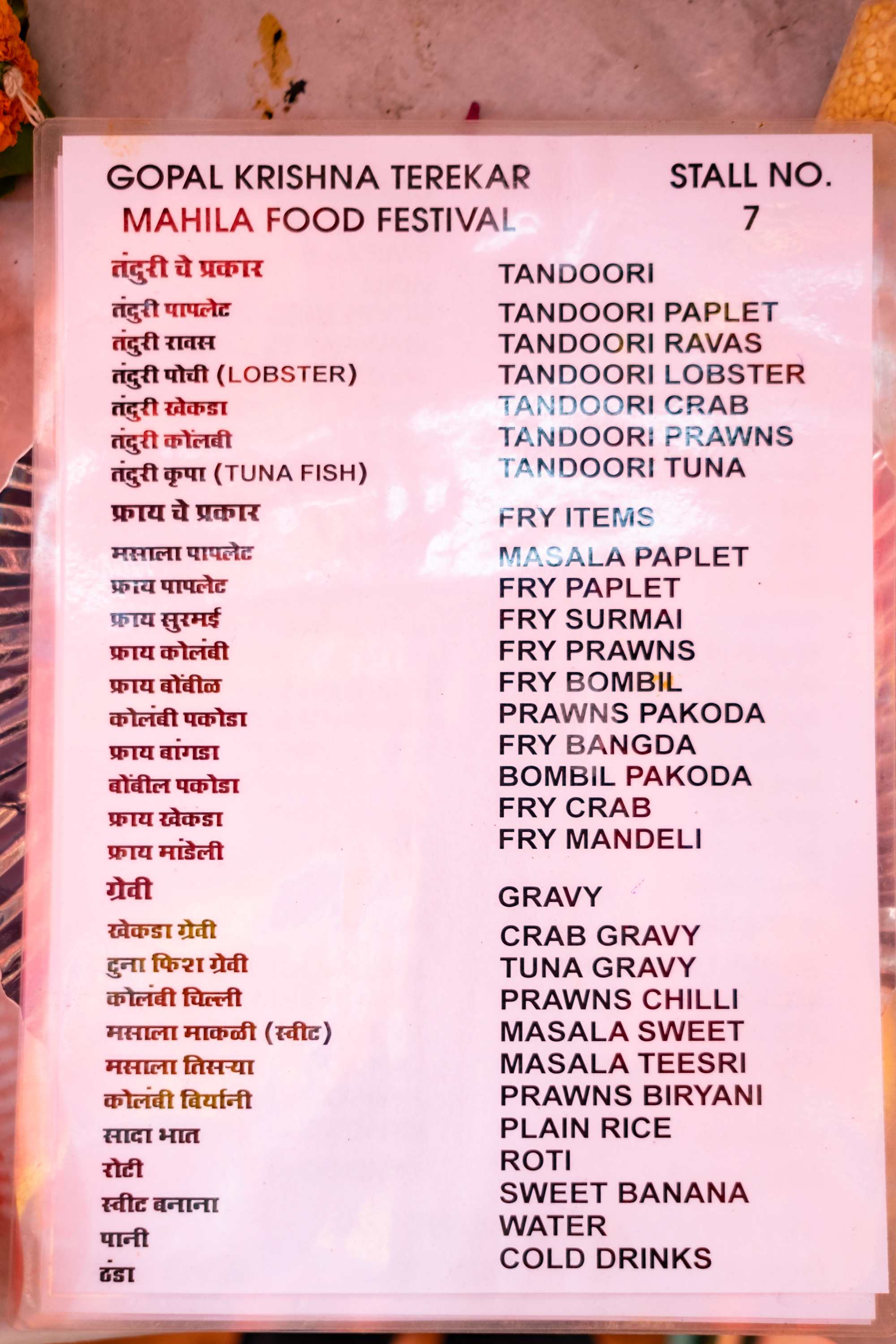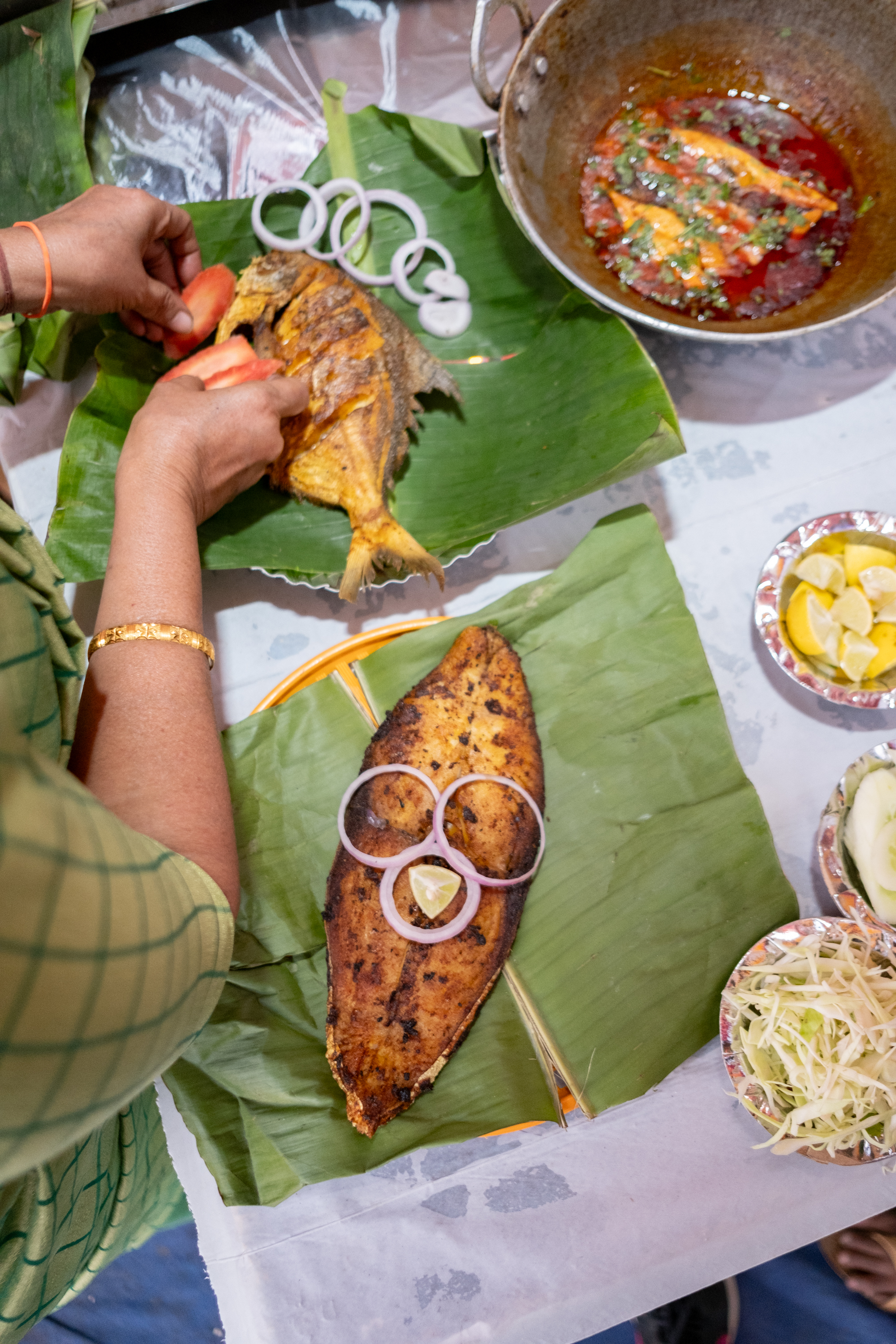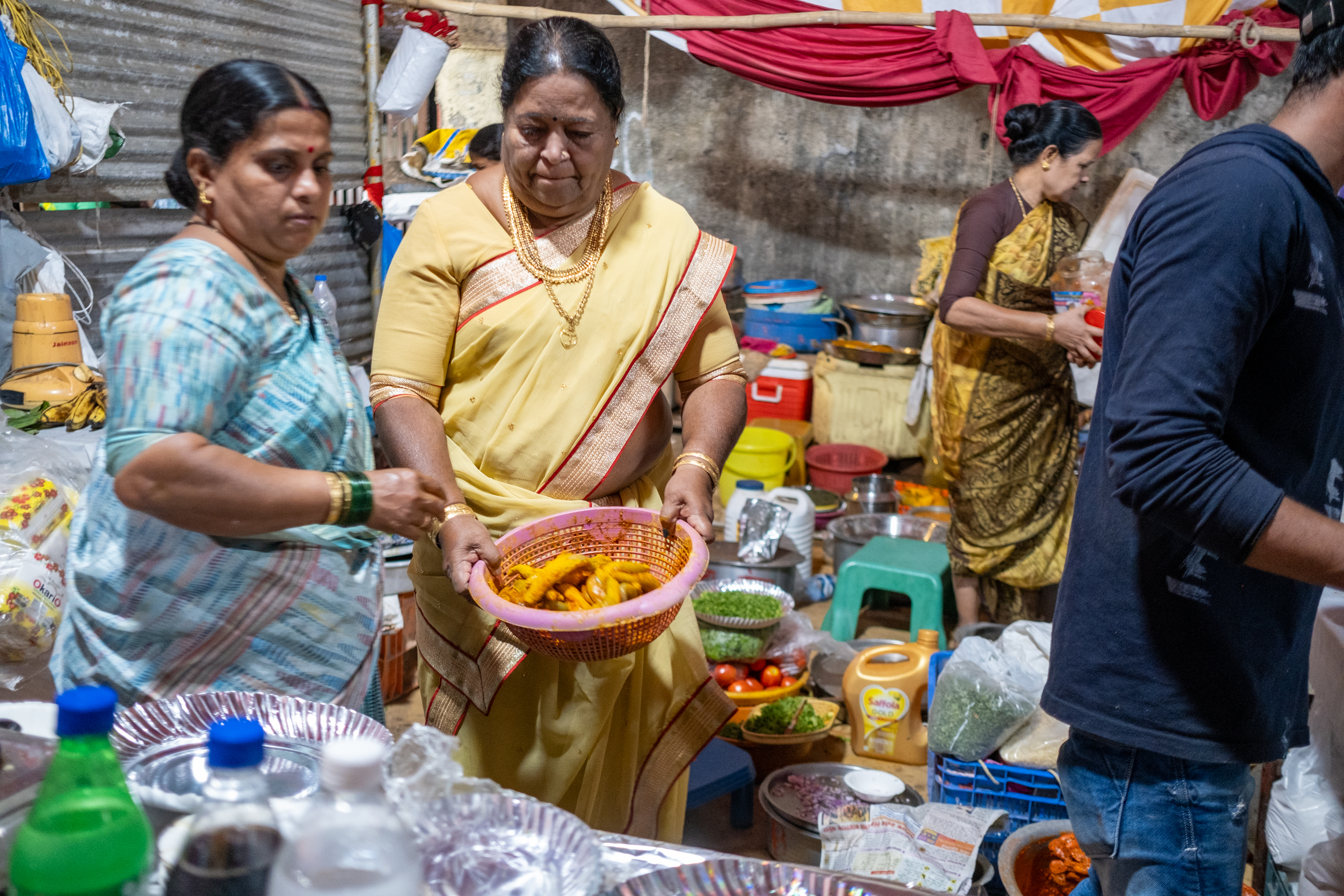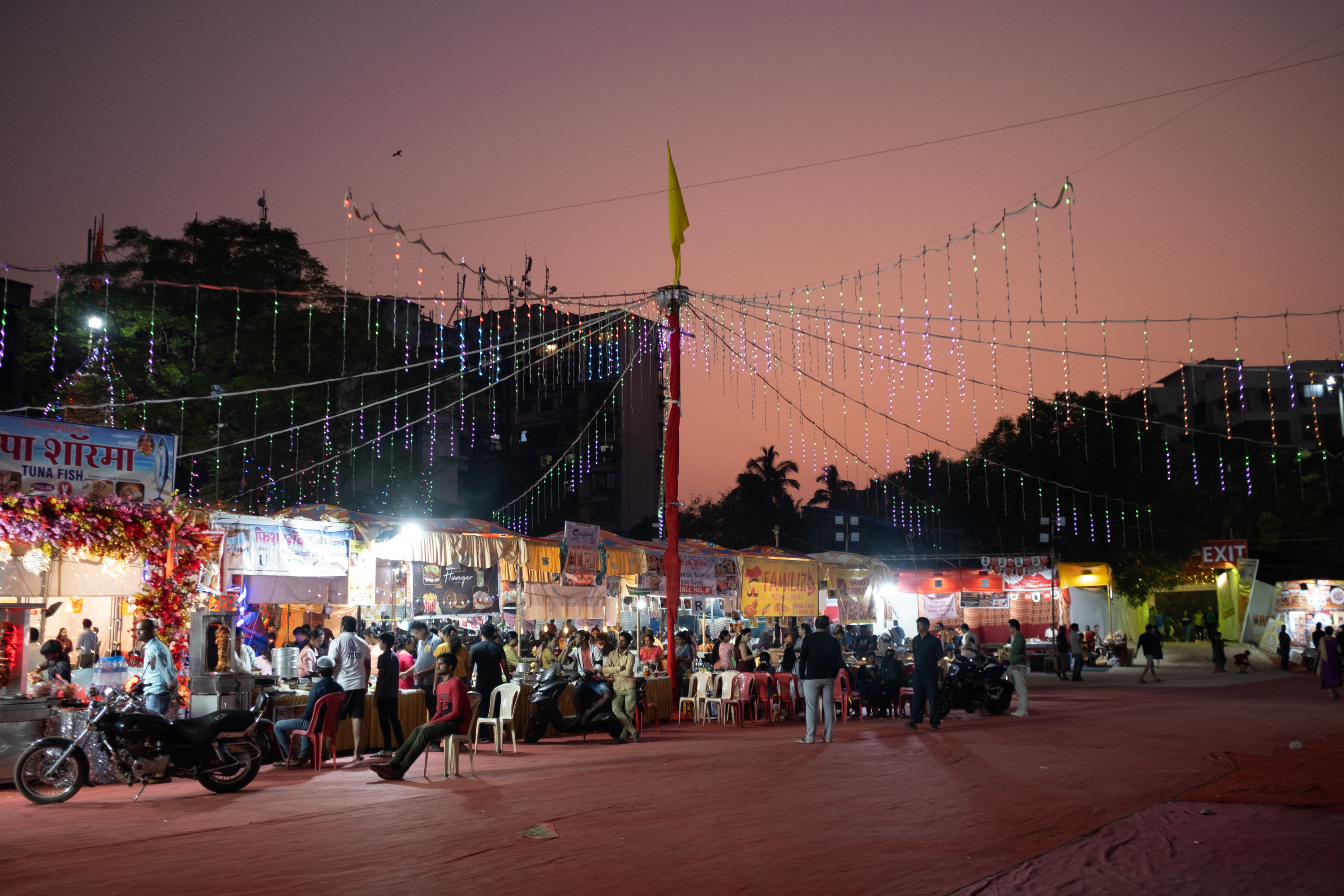Taste of the Sea: Versova Koli Seafood Festival
Versova is among Mumbai’s oldest Koliwadas (fishing villages), strategically located at the confluence of Malad Creek and the Arabian Sea. As with other Koliwadas, the culture of Versova is deeply intertwined with maritime history. The Kolis are among the earliest inhabitants of the islands of Mumbai. They are expert seamen and rely on fishing as their main source of income. But as times change, the Koli community—like many other fishing communities across the world—faces challenges in sustaining their ancestral livelihood. Mumbai's fishing industry is fiercely competitive, with commercial trawlers and large-scale industrial fishing operations dominating the market. Small-scale Koli fishermen struggle to compete with larger operators, reducing profitability and increasing economic uncertainty.
In addition to competitive pressures, operational costs have skyrocketed, and the fish population in the waters off the coast of Mumbai have declined due to increasing pollution, habitat degradation, loss and damage to the mangrove ecosystem in Malad Creek, climate change, overfishing, and several other factors. The diminishing fish population makes it increasingly difficult for small-scale Koli fishermen to sustain their livelihoods and maintain viable fishing operations. Furthermore, many fishermen face challenges in accessing essential resources and infrastructure necessary for fishing, such as modern boats, fishing gear, cold storage facilities, and market access.
To diversify their income, the Koli community had to come up with alternative sources of revenue generation. It might be noted that, though the Kolis were into the business of catching and selling fish, they did not commercialise their seafood cuisine. Food preparation was always a domestic affair meant for family and friends. There was no written cookbook, and recipes were passed down from mother to daughter through hands-on training in the kitchen. Occasionally, during events like weddings, the women of the neighbourhood or the extended family worked together to prepare meals for guests. This age-old arrangement started to change with new technology and the changing role of women in Koli society.
Koli women had always been outgoing and entrepreneurial, expertly managing the economic affairs of the family in addition to household work. The advent of mobile phones and the internet allowed Koli women to explore entrepreneurship opportunities in the culinary arts by starting small-scale food businesses, catering services, or home-based commercial kitchens. They make videos of their recipes in their home kitchen and post them on YouTube channels and other social media platforms, like Facebook. This way, they have reached out to a larger audience and could run a food delivery business from the comfort of their home, earning extra income for the family. Food blogging and vlogging by food influencers have also contributed to spreading awareness and raising interest in Koli culinary traditions.
To cater to the rising demand for authentic Koli cuisine, the community had to reach out directly to customers. The idea was incubated in 2005, and in 2006, the Versova Koli Seafood Festival was organised in Versova village, which turned out to be a great success. The festival is now an annual event that takes place over three days in January, which is a low season for fishing operations, making it the ideal time to organise community events. Encouraged by the festival's success, similar Koli seafood festivals also take place in Juhu, Worli, Mahim, and Sassoon Dock, among other places in Mumbai.
The festival provides a platform for Koli women to showcase their culinary skills, share their cultural heritage, and promote the seafood delicacies that are integral to their culinary traditions. It also offers visitors the opportunity to immerse themselves in the vibrant atmosphere of Versova Koliwada and enjoy live music, cultural performances, and other entertainment activities. Over the years, the festival has become a highly anticipated event, attracting locals, tourists, food enthusiasts, and celebrities who come to experience the flavours of authentic Koli cuisine.
For Koli women, a typical day starts very early, long before sunrise. They travel long distances to wholesale fish markets to buy fresh catch and sell it in the local market, after which they devote their time to running their household. However, during the festival, they take a break. Teams are formed, and preparations start at least a week before the festival. The stalls are assigned by the organising committee based on a lottery system. A special group of 30 women from Versova village joins every year under the banner of the of the Gopal Krishna Terekar Mahila Food Festival. To run their stall, each woman in the group chips in with Rs 5,000. They use this fund to buy fish stock and cooking ingredients and pay the organising committee for décor, rent, and electricity. After the festival ends, profits are calculated and shared equally.
Preparation for the day ahead starts early in the morning when fresh fish is delivered from the dock. This includes Koli specialities like Bombay duck (bombil), pomfret (paplet), mackerel (bangda), sardines (tarli, pedvey), king fish (surmai), prawns (kolambi), and shrimp (jhinga). Exotic species, like crabs (kekda), oysters, lobsters, squid, and raw fish eggs (gaboli), are also available during festival days. The fish are thoroughly cleaned, gutted, and preserved in ice boxes to maintain freshness. Amidst the salty breeze and lively chatter, the Koli women perform their assigned tasks. Some run the kitchen, doing cleaning, marinating, cutting vegetables, and frying, while others look after the front desk, which includes taking orders, making payments, serving tables, and dispatching home deliveries. Post-lunch, the women take turns returning home to dress in their finest makeup, jewellery, and sarees. Wearing traditional Koli attire, they return to the stalls for the main event at night, when cultural shows are held and crowds arrive in large numbers.
Traditional homemade recipes take centre stage at the Versova Koli Seafood Festival, offering a taste of authenticity rarely found in food served in restaurants. Whether it is the tantalising aroma of pomfret marinated in yoghurt and spices roasted in the tandoor or the skilful cleaning of crabs by expert hands, every aspect of the culinary experience reflects the deep-rooted traditions of the Koli community. In essence, the festival offers a unique opportunity to experience the flavours, traditions, and hospitality of the Koli community while supporting local livelihoods and promoting sustainable seafood practices. The Versova Koli Seafood Festival has played a significant role in promoting tourism, preserving cultural heritage, and supporting the livelihoods of the Koli community in Versova. It continues to be a highlight of Mumbai's culinary calendar, drawing food lovers from across the city and beyond to indulge in the flavours of the sea.
The Versova Koli Seafood Festival provides a platform for Koli women to showcase their culinary skills and promote the seafood delicacies that are an integral part of their culinary traditions. It also offers visitors the opportunity to contribute to the local economy and support sustainable livelihoods by purchasing seafood, handicrafts, and other products directly from Koli vendors and artisans.
The Versova Koli Seafood Festival is an opportunity to connect with members of the Koli community, including fishermen, fisherwomen, artisans, and cultural performers, to learn about their way of life, occupations, and cultural practices.
Teams are formed, and preparations start at least a week before the festival. Around 50–60 stalls are set up at the Versova Koli Seafood Festival. To run their stall, each woman in the group chips in with individual contributions. They use this combined fund to buy fish stock and cooking ingredients and pay the organising committee for décor, rent, and electricity.
The Koli women are the backbone of the Koli community. They are industrious and entrepreneurial, managing their household and family businesses with skill and expertise. A typical day for Koli women starts very early, long before sunrise. They travel long distances to wholesale fish markets to buy a fresh catch and sell it in the local market, after which they devote time to running their household.
The festival is an opportunity for Koli women to explore entrepreneurship opportunities in the culinary arts by starting small-scale food businesses, catering services, or home-based commercial kitchens. Empowered Koli women play a vital role in shaping the future of their families, communities, and society at large.
Pictured here is a Koli woman preparing a dish known as a sweet banana. Making this involves peeling a ripe banana, delicately slicing it to stuff with coconut filling, and then gently roasting it in butter.
Bombil fish, also known as Bombay duck, is often dried in the sun as a traditional method of preservation. The dehydration process inhibits the growth of bacteria and moulds, extending the shelf life of the fish. The drying process removes excess moisture from the fish and concentrates its flavours, intensifying its taste and aroma.
Marinating fish in advance saves time during busy meal times and allows the flavours to develop over time. The marinade infuses the fish with additional layers of flavour, creating a more complex and delicious taste profile.
In the morning, preparations are made for lunch. Post-lunch, after a short break, preparation for dinner starts at 3 p.m. Throughout the day, women run their stalls by operating in shifts.
The catch arrives in the morning and is immediately preserved in ice boxes to maintain flavour and freshness. This fish includes Koli specialities like Bombay duck (bombil), pomfret (paplet), mackerel (bangda), sardines (tarli, pedvey), king fish (surmai), golden anchovy (mandeli), prawns (kolambi), and shrimp (jhinga).
Much of Koli cuisine includes grated coconut as an ingredient or garnish. It improves the flavour and texture of chutneys and curries. A common element in many Koli meals, particularly stews and curries, is coconut milk.
Frying is the last step of preparation. The marinated fish are put one at a time in boiling oil. They are fried until they become crispy and golden brown on both sides. Depending on how it is prepared, the fish can also be grilled, roasted, smoked, or barbecued.
Turmeric powder, red chilli powder, salt, ginger-garlic paste, and occasionally a small amount of vinegar or lemon juice are common ingredients used in the marinade. To allow the spices to seep into the fish, deep cuts are made on the sides. Marinating fish allows for an even distribution of seasoning throughout the meat, ensuring that every bite is well-seasoned and flavourful.
In certain recipes, the fish must be coated with a mixture of rice flour and semolina (suji) before frying it to give it a crispy texture. Although optional, this step improves the dish's flavour and texture. Pomfret is cooked in a tandoor after it is marinated in traditional spices and yoghurt (dahi).
The setup may look chaotic, but each team member has a clearly assigned role. Some run the kitchen, cleaning, marinating, cutting vegetables, and frying, while others look after the front desk, which includes taking orders, making payments, serving tables, and dispatching home deliveries.
A big draw of the festival is the chance to savour exotic seafood at reasonable prices. Crabs (kekda), oysters, lobsters, squid, and raw fish eggs (gaboli) are in high demand during festival days.
Cleaning seafood thoroughly before cooking is essential for food safety, hygiene, and quality control. Washing seafood separately from other ingredients and utensils reduces the risk of spreading harmful bacteria or pathogens to other foods and minimises the likelihood of foodborne illness.
Traditional homemade recipes take centre stage at the Versova Koli Seafood Festival, offering a taste of authenticity rarely found in restaurant food. Visitors to the festival learn about the art of Koli cooking by attending live cooking demonstrations and culinary workshops conducted by expert chefs and Koli women.
After the festival ends, profits are calculated and shared equally. The three days of earnings from the festival compensate for the low returns during the low season.
The menu card from the Gopal Krishna Terekar Mahila Food Festival showcases the culinary heritage of the Koli community in Versova.
The festival also serves as a platform to promote sustainable fishing practices and raise awareness about the importance of marine conservation. To set an example, in some stalls, food is served on banana leaves, an age-old Indian tradition that is environmentally friendly.
In the daytime, the women dress casually, but in the evening, they return to their homes and return in traditional Koli attire, wearing brilliantly coloured saris (navvaris) and heavy sets of gold jewellery. Wearing gold jewellery is particularly important to Koli women because it is a status symbol and a mark of prosperity.
The festival is held at St. Anthony’s Church grounds in Versova village. It comes to life at night when the crowd swells and business peaks. In addition to food stalls, crowds enjoy live music, cultural performances, and other entertainment activities and programs that last until midnight.
